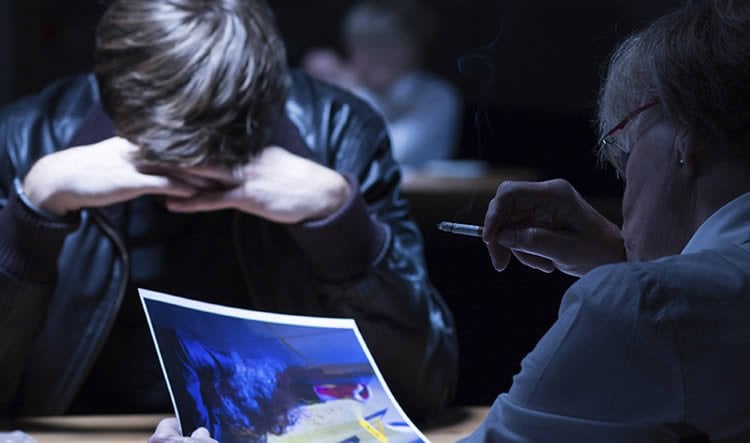Sleep-deprived people are much more likely to sign false confessions than rested individuals, according to a groundbreaking study that has important implications for police interrogation practices.
The odds of signing a false confession were 4.5 times higher for participants who had been awake for 24 hours than for those who had slept eight hours the night before.
Led by Kimberly M. Fenn, associate professor of psychology at Michigan State University, the study is published in this week’s Proceedings of the National Academy of Sciences.
“This is the first direct evidence that sleep deprivation increases the likelihood that a person will falsely confess to wrongdoing that never occurred,” said Fenn. “It’s a crucial first step toward understanding the role of sleep deprivation in false confessions and, in turn, raises complex questions about the use of sleep deprivation in the interrogation of innocent and guilty suspects.”
False confessions in the United States are thought to account for 15 percent-25 percent of wrongful convictions. And past research has indicated that the interrogation of unrested, possibly sleep-deprived suspects is commonplace.
For the study, conducted in Fenn’s Sleep and Learning Lab, 88 participants completed various computer activities and a cognitive test during several laboratory sessions over a weeklong period. Participants were given several warnings not to hit the “escape” key because “this could cause the computer to lose valuable data.” Participants were monitored during the tasks.
On the final day of the experiment, half of the participants slept for eight hours while the other half stayed awake overnight. The next morning before leaving the lab, each participant was shown a statement summarizing his or her activities and falsely alleging the participant had pressed the escape key. Participants were asked to sign the statement, check a box confirming its accuracy and sign their name.
The results were striking: 50 percent of sleep-deprived participants signed the false confession, while only 18 percent of rested participants signed it.
Further, sleep deprivation had a significant effect on participants who scored lower on the Cognitive Reflection Test, which is related to intelligence. Those participants were much more likely to sign the false confession.

To protect against the harmful effects of false confessions, Fenn and her co-authors recommend interrogations be videotaped, giving judges, attorneys and jurors added insight into a suspect’s psychological state.
Suspects also can be given a quick and easy test to determine sleepiness prior to an interrogation. Participants in the MSU-led study were given the publicly available Stanford Sleepiness Scale; those who indicated a higher level of sleepiness were significantly more likely to sign the false confession.
“A false admission of wrongdoing can have disastrous consequences in a legal system already fraught with miscarriages of justice,” the authors conclude. “We are hopeful that our study is the first of many to uncover the sleep-related factors that influence processes related to false confession.”
Fenn’s co-authors are Steven Frenda of the New School for Social Research, Shari Berkowitz of California State University, Dominguez Hills; and Elizabeth Loftus of the University of California, Irvine.
Source: Kimberly Fenn & Andy Henion – Michigan State University
Image Source: Image adapted from the Michigan State University press release.
Original Research: Abstract for “Sleep deprivation and false confessions” by Steven J. Frenda, Shari R. Berkowitz, Elizabeth F. Loftus, and Kimberly M. Fenn in PNAS. Published online February 8 2016 doi:10.1073/pnas.1521518113
Abstract
Sleep deprivation and false confessions
False confession is a major contributor to the problem of wrongful convictions in the United States. Here, we provide direct evidence linking sleep deprivation and false confessions. In a procedure adapted from Kassin and Kiechel [(1996) Psychol Sci 7(3):125–128], participants completed computer tasks across multiple sessions and repeatedly received warnings that pressing the “Escape” key on their keyboard would cause the loss of study data. In their final session, participants either slept all night in laboratory bedrooms or remained awake all night. In the morning, all participants were asked to sign a statement, which summarized their activities in the laboratory and falsely alleged that they pressed the Escape key during an earlier session. After a single request, the odds of signing were 4.5 times higher for the sleep-deprived participants than for the rested participants. These findings have important implications and highlight the need for further research on factors affecting true and false confessions.
“Sleep deprivation and false confessions” by Steven J. Frenda, Shari R. Berkowitz, Elizabeth F. Loftus, and Kimberly M. Fenn in PNAS. Published online February 8 2016 doi:10.1073/pnas.1521518113






